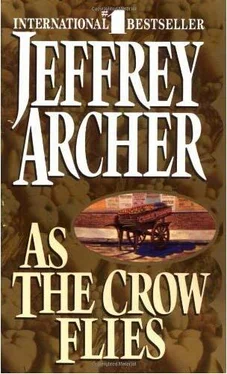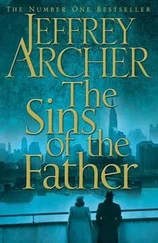"Yes, there is. To start with, can you remember anything about the customer who brought that particular lot in for sale?"
"Certainly can," replied Cathy, "because I was called to the front desk to deal with the lady." She paused for a moment before adding, "Can't remember her name, but she was elderly and rather—genteel is the way I think you would describe her," Cathy hesitated then continued. "As I remember, she had taken a day trip down from Nottingham. She told me that she'd been left the tea set by her mother. She didn't want to sell a family heirloom but 'needs must.' I remember that expression, because I'd never heard it before."
"And what was Mr. Fellowes' opinion when you showed him the set?"
"As fine an example of the period as he'd seen come under the hammer—each piece is still in almost mint condition. Peter's convinced the lot will fetch a good price, as you can see from his estimate."
"Then we'd better call in the police straight away," said Becky. "We don't need our mystery man standing up again announcing that this particular item has been stolen too."
She picked up the telephone on her desk and asked to be put through to Scotland Yard. A few moments later an Inspector Deakins of the CID came on the line and, having listened to the details of what had taken place that morning, agreed to come round to the gallery during the afternoon.
The inspector arrived a little after three, accompanied by a sergeant. Becky took them both straight through to meet the head of the department. Peter Fellowes pointed to a minute scratch he had come across on a silver salver. Becky frowned. He stopped what he was doing and walked over to the center table where the four-piece tea set was already out on display.
"Beautiful," said the inspector as he bent over and checked the hallmark. "Birmingham around 1820 would be my guess."
Becky raised an eyebrow.
"It's my hobby," the inspector explained. "That's probably why I always end up getting these jobs." He removed a file from the briefcase he was carrying and checked through several photographs along with detailed written descriptions of recently missing pieces of silverware from the London area. An hour later he had to agree with Fellowes: none of them fitted the description of the Georgian tea set.
"Well, we've had nothing else reported as stolen that matches up with this particular lot," he admitted. "And you've polished them so superbly," he said, turning to Cathy, "that there's no hope of our identifying any prints."
"Sorry," said Cathy, blushing slightly.
"No, miss, it's not your fault, you've done a fine job. I only wish my little pieces looked so good. Still, I'd better check with the Nottingham police in case they have something on their files. If they haven't, I'll issue a description to all forces throughout the United Kingdom, just in case. And I'll also ask them to check on Mrs. . . . ?"
"Dawson," said Cathy.
"Yes, Mrs. Dawson. That may take a little time, of course, but I'll come back to you the moment I hear anything."
"Meanwhile our sale takes place three weeks next Tuesday," Becky reminded the inspector.
"Right, I'll try and give you the all-clear by then," he promised.
"Should we leave that page in the catalogue, or would you prefer the pieces to be withdrawn?" asked Cathy.
"Oh, no, don't withdraw anything. Please leave the catalogue exactly as it is. You see, someone might recognize the set and then get in touch with us."
Someone has already recognized the set, thought Becky.
"While you're at it," continued the inspector, "I'd be obliged if you could give me a copy of the catalogue picture, as well as use of one of the negatives for a day or two."
When Charlie was told about the Georgian tea set over dinner that night his advice was simple: withdraw the pieces from the sale—and promote Cathy.
"Your first suggestion isn't quite that easy," said Becky. "The catalogue is due to be sent out to the general public later this week. What explanation could we possibly give to Mrs. Dawson for removing her dear old mother's family heirloom?"
"That it wasn't her dear old mother's in the first place and you withdrew it because you've every reason to believe that it's stolen property."
"If we did that, we could find ourselves being sued for breach of contract," said Becky, "when we later discover that Mrs. Dawson's totally innocent of any such charge. If she then took us to court we wouldn't have a leg to stand on."
"If this Dawson lady is as totally innocent as you think, then why is Mrs. Trentham showing such an interest in her tea set? Because I can't help feeling she already has one of her own."
Becky laughed. "She certainly has. I know, because I've even seen it, though I never did get the promised cup of tea."
Three days later Inspector Deakins telephoned Becky to let her know that the Nottingham police had no record of anything that had been stolen in their patch fitting the tea set's description and they were also able to confirm that Mrs. Dawson was not previously known to them. He had therefore sent the details out to every other constabulary in the land. "But," he added, "outside forces aren't always that cooperative with the Met when it comes to trading information."
As Becky put the phone down, she decided to give the green light and send the catalogues out, despite Charlie's apprehension. They were posted the same day along with invitations to the press and selected customers.
A couple of journalists applied for tickets to the sale. An unusually sensitive Becky checked them out, only to find that both worked for national newspapers, and had covered Trumper's sales several times in the past.
Simon Matthews considered that Becky was overreacting, while Cathy tended to agree with Sir Charles that the wise course would be to withdraw the tea set from the auction until they had been given the all-clear by Deakins.
"If we're to withdraw a lot every time that man takes an interest in one of our sales we may as well close our front doors and take up stargazing," Simon told them.
The Monday before the sale was to take place Inspector Deakins telephoned to ask if he could see Becky urgently. He arrived at the gallery thirty minutes later, again accompanied by his sergeant. This time the only item he removed from his briefcase was a copy of the Aberdeen Evening Express dated 15 October 1949.
Deakins asked to be allowed to inspect the Georgian tea set once more. Becky nodded her agreement and the policeman studied each piece carefully against a photograph that was on an inside page of the newspaper.
"That's them all right," he said, after double-checking. He showed Becky the photograph.
Cathy and Peter Fellowes also studied each item while looking carefully at the picture from the newspaper and had to agree with Deakins that the match was perfect.
"This little lot was stolen from the Aberdeen Museum of Silver some three months ago," the inspector informed them. "The bloody local police didn't even bother to let us know. No doubt they considered it was none of our business."
"So what happens now?" asked Becky.
"The Nottingham constabulary have already visited Mrs. Dawson, where they found several other pieces of silver and jewelry hidden around the house. She's been taken to her local station in order to, as the press would have it, help the police with their inquiries." He placed the newspaper back in his briefcase. "After I've phoned them to confirm my piece of news, I expect that she'll be charged later today. However, I'm afraid I shall have to take the tea set away with me for processing at Scotland Yard."
"Of course," said Becky.
"My sergeant will write out a receipt for you, Lady Trumper, and I'd like to thank you for your cooperation." The inspector hesitated as he looked lovingly at the tea set. "A month's salary," he said with a sigh, "and stolen for all the wrong reasons." He raised his hat and the two policemen lent the gallery.
Читать дальше












